Nadezhdin and the Hope
The most crucial message of his campaign to both the country and the world: there are numerous individuals in Russia who oppose this war, who oppose Putin
By Fedor Krasheninnikov February 15, 2024
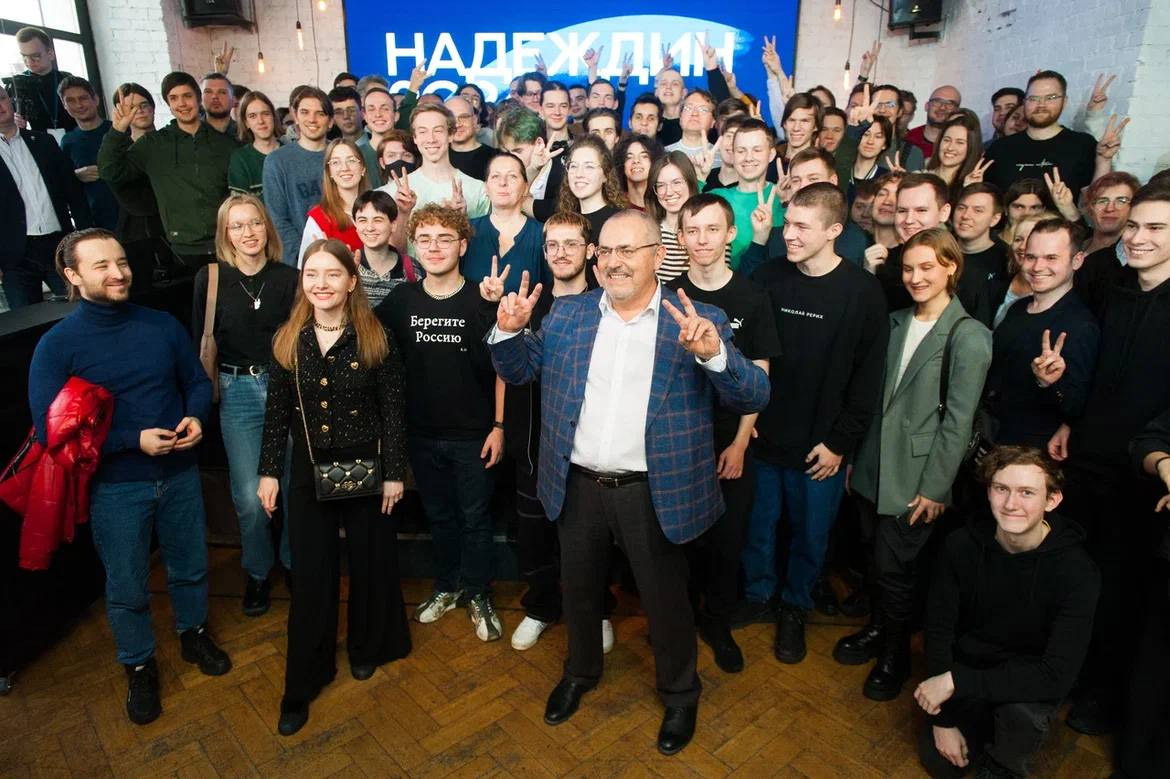
The most crucial message of his campaign to both the country and the world: there are numerous individuals in Russia who oppose this war, who oppose Putin
By Fedor Krasheninnikov February 15, 2024

The story of Boris Nadezhdin’s bid to become a candidate in the Russian presidential election concluded in failure: as expected, the Central Election Commission (CEC) declined to register him, citing an inadequate number of signatures in his support remaining after a rigorous vetting process.
Nonetheless, this narrative yielded significant, valuable, and even inspiring insights into the state of affairs in Russia.
The story of Boris Nadezhdin’s bid to become a candidate in the Russian presidential election concluded in failure: as expected, the Central Election Commission (CEC) declined to register him, citing an inadequate number of signatures in his support remaining after a rigorous vetting process.
Nonetheless, this narrative yielded significant, valuable, and even inspiring insights into the state of affairs in Russia.
The fervor with which a significant number of people across Russia engaged in the election campaign of Ekaterina Duntsova (who was not even allowed by the CEC to collect signatures) and later Boris Nadezhdin, clearly demonstrates how close and understandable the idea of changing the government through elections is to the Russian people.
The elusive opportunity to vote not for Putin, but for a more sympathetic and, importantly, anti‑war candidate, galvanized tens of thousands of people across the nation, prompting them to join the campaigns of Duntsova and Nadezhdin.
The fervor with which a significant number of people across Russia engaged in the election campaign of Ekaterina Duntsova (who was not even allowed by the CEC to collect signatures) and later Boris Nadezhdin, clearly demonstrates how close and understandable the idea of changing the government through elections is to the Russian people.
The elusive opportunity to vote not for Putin, but for a more sympathetic and, importantly, anti‑war candidate, galvanized tens of thousands of people across the nation, prompting them to join the campaigns of Duntsova and Nadezhdin.
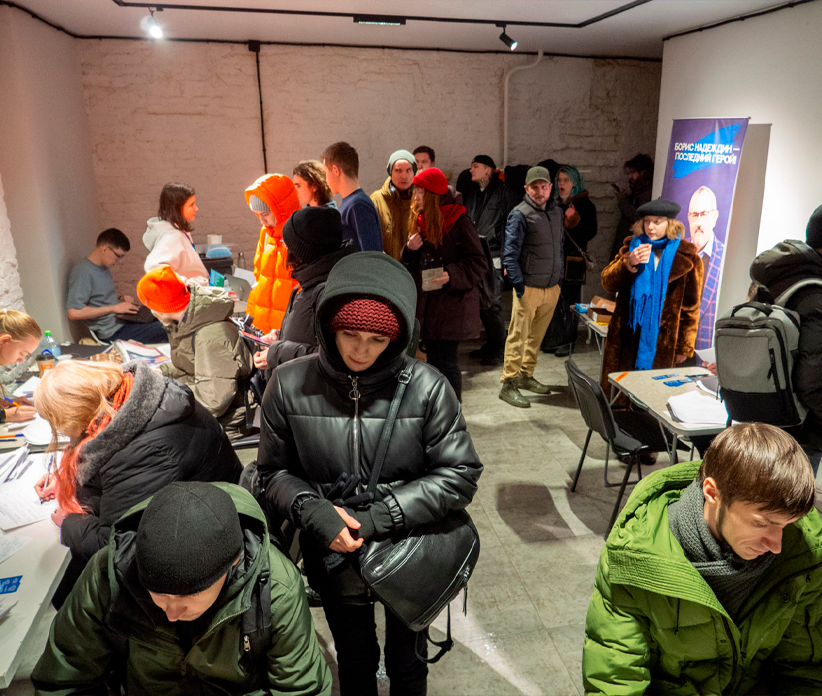

By “engaged,” we mean not only those who signed petitions and gathered signatures but also those who made donations and, most significantly, expressed support for these candidates, reacting to their presence on social media, watching dedicated broadcasts on platforms like YouTube, and consuming other media coverage.
Even the seemingly naive belief, which may irritate many observers, that dictator Putin can be defeated in the elections he controls, carries a positive significance: it unmistakably illustrates that people in Russia desire democracy.
They yearn to have the freedom to choose, to be able to replace entrenched politicians through fair and transparent elections.
By «engaged," we mean not only those who signed petitions and gathered signatures but also those who made donations and, most significantly, expressed support for these candidates, reacting to their presence on social media, watching dedicated broadcasts on platforms like YouTube, and consuming other media coverage.
Even the seemingly naive belief, which may irritate many observers, that dictator Putin can be defeated in the elections he controls, carries a positive significance: it unmistakably illustrates that people in Russia desire democracy.
They yearn to have the freedom to choose, to be able to replace entrenched politicians through fair and transparent elections.
The majority of those who participated in his campaign in any capacity harbored no illusions about Nadezhdin’s persona.
Apart from a small circle of very naive individuals, most people understood quite clearly that they weren’t necessarily endorsing a particular individual, Boris Nadezhdin, but rather publicly and openly expressing their opposition to Vladimir Putin’s policies and the perpetuation of his rule.
This was the impetus driving Nadezhdin’s campaign.
The majority of those who participated in his campaign in any capacity harbored no illusions about Nadezhdin’s persona.
Apart from a small circle of very naive individuals, most people understood quite clearly that they weren’t necessarily endorsing a particular individual, Boris Nadezhdin, but rather publicly and openly expressing their opposition to Vladimir Putin’s policies and the perpetuation of his rule.
This was the impetus driving Nadezhdin’s campaign.
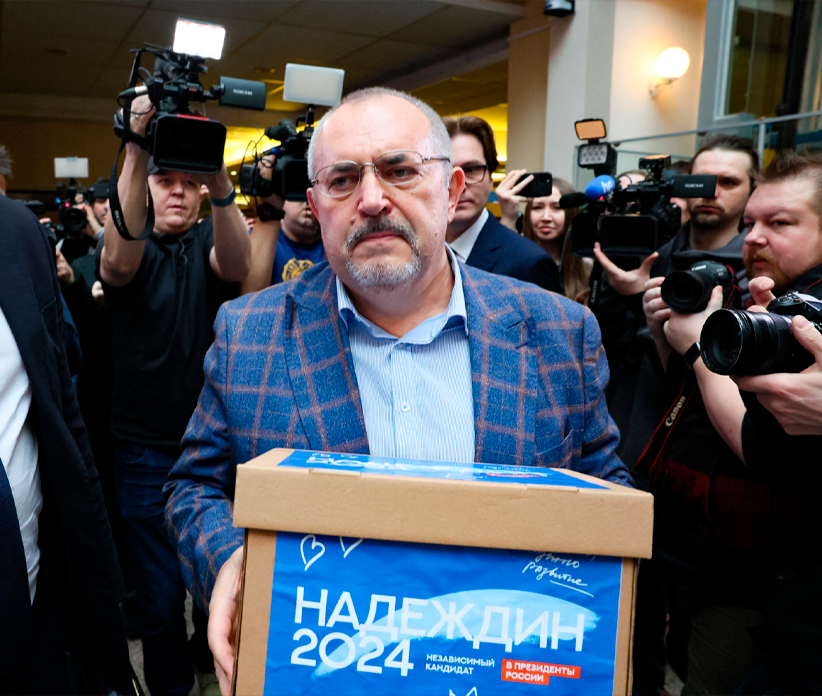

By joining public rallies in support of the anti‑war candidate, people in Russia came to realize that this could potentially be their final chance to openly voice opposition to Putin without facing repercussions — at least not immediately after attending the rally.
Observing the lines of people enduring the freezing cold at the signature collection sites for Nadezhdin, one couldn’t help but ponder: these individuals would likely attend an anti‑war protest rally or an opposition demonstration willingly, if they were assured they wouldn’t face beatings, arrests, convictions, or lengthy prison sentences.
By joining public rallies in support of the anti‑war candidate, people in Russia came to realize that this could potentially be their final chance to openly voice opposition to Putin without facing repercussions — at least not immediately after attending the rally.
Observing the lines of people enduring the freezing cold at the signature collection sites for Nadezhdin, one couldn’t help but ponder: these individuals would likely attend an anti‑war protest rally or an opposition demonstration willingly, if they were assured they wouldn’t face beatings, arrests, convictions, or lengthy prison sentences.


To those who question why there are no anti‑war protests in Russia, we must reiterate: it’s because everyday citizens, with good intentions and a love for their country, aren’t willing to jeopardize their lives, health, property, and the safety of their loved ones to participate in protests that are banned by the authorities and unlikely to result in a change of regime.
However, if they perceive an opportunity to take action without facing excessive or any risk at all, we may witness mass protests again. Perhaps even a readiness for more radical actions — if these same individuals believe they’re taking a risk for the sake of achieving victory, rather than just landing on the list of political prisoners.
To those who question why there are no anti‑war protests in Russia, we must reiterate: it’s because everyday citizens, with good intentions and a love for their country, aren’t willing to jeopardize their lives, health, property, and the safety of their loved ones to participate in protests that are banned by the authorities and unlikely to result in a change of regime.
However, if they perceive an opportunity to take action without facing excessive or any risk at all, we may witness mass protests again. Perhaps even a readiness for more radical actions — if these same individuals believe they’re taking a risk for the sake of achieving victory, rather than just landing on the list of political prisoners.
Boris Nadezhdin is a figure who has been active in politics for quite a while, since the 1990s, yet he hasn’t achieved any particularly noteworthy successes in this realm.
Besides his association and collaboration with Boris Nemtsov, a prominent critic of Vladimir Putin and an opposition leader who was assassinated outside the Kremlin in 2015, Boris Nadezhdin has considerably more questionable connections, notably with the current deputy head of the Russian presidential administration, Sergei Kirienko.
Despite his evident pro‑democratic and liberal views, Nadezhdin has never taken any radical stances. He has been associated with the systematically structured A Just Russia Party and has even participated in the primaries of United Russia.
However, if there was one aspect for which he was known among a relatively wider audience, it was his appearances on federal channels' propaganda shows, where he was often portrayed as a “liberal punching bag”.
Boris Nadezhdin is a figure who has been active in politics for quite a while, since the 1990s, yet he hasn’t achieved any particularly noteworthy successes in this realm.
Besides his association and collaboration with Boris Nemtsov, a prominent critic of Vladimir Putin and an opposition leader who was assassinated outside the Kremlin in 2015, Boris Nadezhdin has considerably more questionable connections, notably with the current deputy head of the Russian presidential administration, Sergei Kirienko.
Despite his evident pro‑democratic and liberal views, Nadezhdin has never taken any radical stances. He has been associated with the systematically structured A Just Russia Party and has even participated in the primaries of United Russia.
However, if there was one aspect for which he was known among a relatively wider audience, it was his appearances on federal channels' propaganda shows, where he was often portrayed as a “liberal punching bag”.
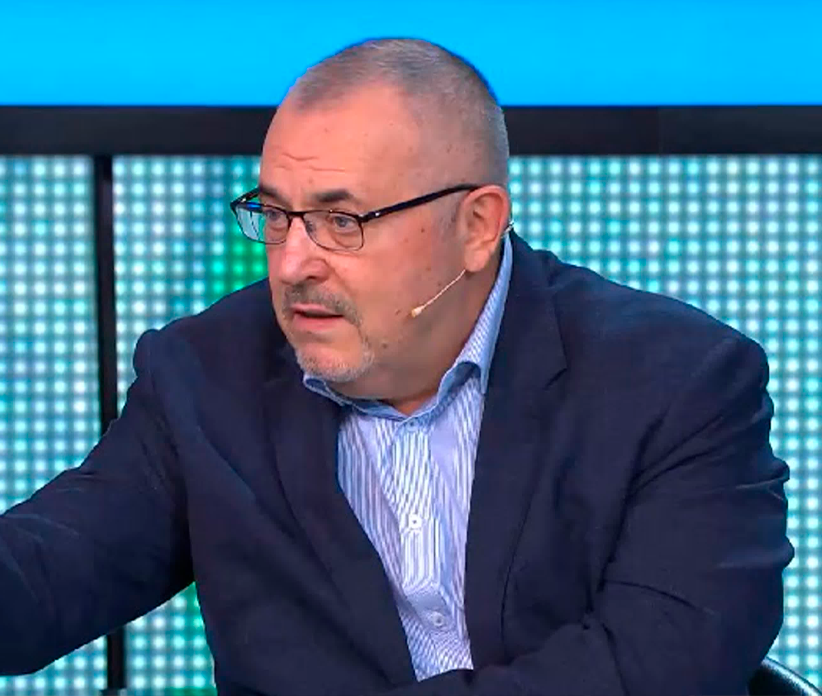

In essence, Boris Nadezhdin himself was hardly perceived by anyone as a potential leader of Russia, or even as a leader of the opposition.
However, in the context of a grave war and an increasingly harsh dictatorship, even such a figure was in demand and became the catalyst for a broad movement with a distinct protesting spirit.
It wasn’t Boris Nadezhdin personally, but the hope for change that led many people with differing views to see this relatively unknown and not particularly charismatic politician as their candidate. And it must be acknowledged that Nadezhdin exceeded expectations: he didn’t disappoint those who supported him.
Despite some reservations and cautiously, he consistently emphasized that he was the sole anti‑war candidate in this election. This is the most crucial message of his campaign to both the country and the world: there are numerous individuals in Russia who oppose this war, who oppose Putin.
The message underscores that hope for change still exists in Russia, and there’s a chance for it to materialize.
In essence, Boris Nadezhdin himself was hardly perceived by anyone as a potential leader of Russia, or even as a leader of the opposition.
However, in the context of a grave war and an increasingly harsh dictatorship, even such a figure was in demand and became the catalyst for a broad movement with a distinct protesting spirit.
It wasn’t Boris Nadezhdin personally, but the hope for change that led many people with differing views to see this relatively unknown and not particularly charismatic politician as their candidate. And it must be acknowledged that Nadezhdin exceeded expectations: he didn’t disappoint those who supported him.
Despite some reservations and cautiously, he consistently emphasized that he was the sole anti‑war candidate in this election. This is the most crucial message of his campaign to both the country and the world: there are numerous individuals in Russia who oppose this war, who oppose Putin.
The message underscores that hope for change still exists in Russia, and there’s a chance for it to materialize.
Interpreting the September 2024 Russian elections
By Olga Gushchina
October 10, 2024
 Article
Article Do these elections still matter? What’s the best plan of action for the Russian prodemocracy forces for these elections?
By Vladimir Milov
February 06, 2024
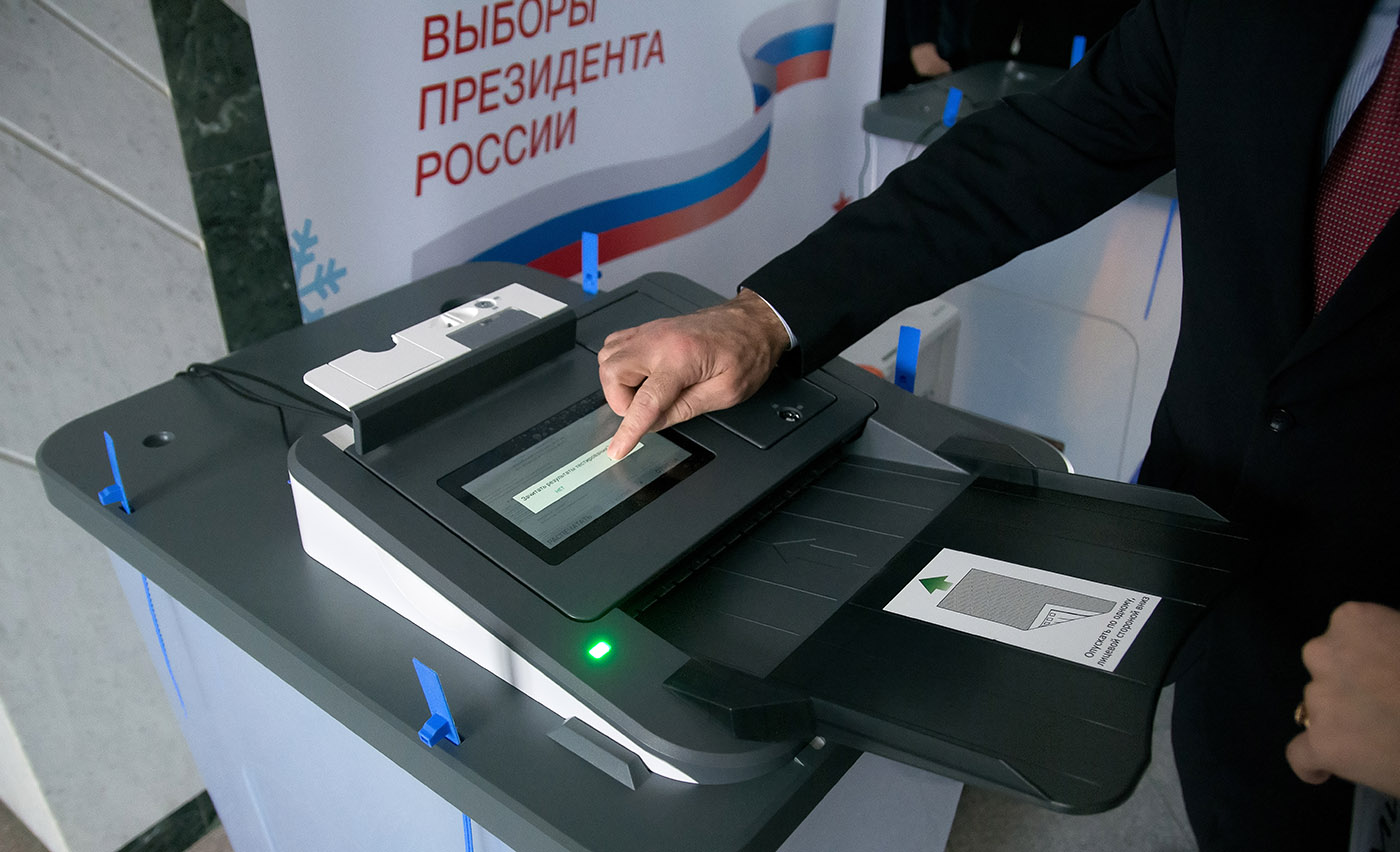 Article
Article By Vladimir Milov
July 03, 2024
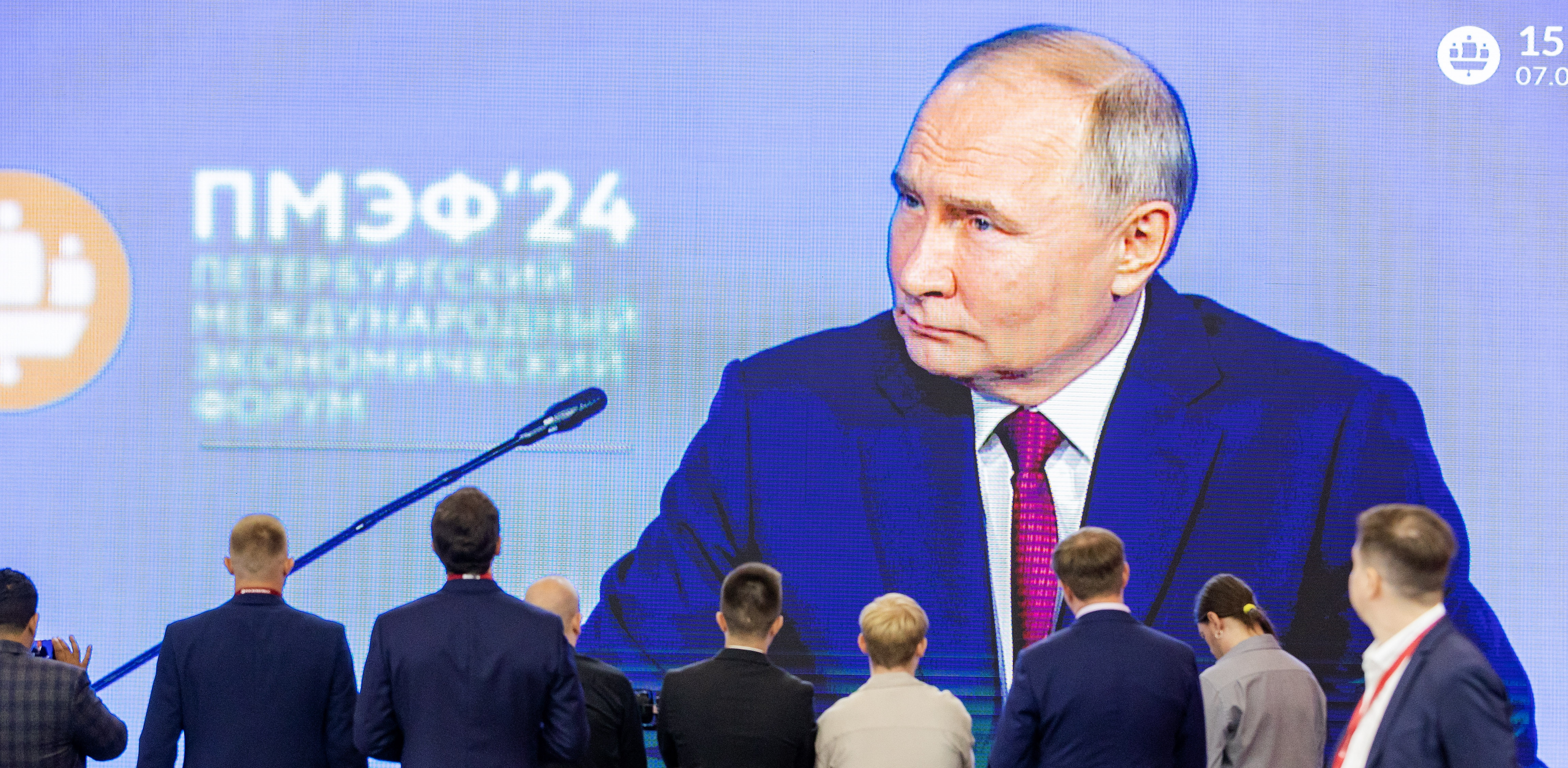
Interpreting the September 2024 Russian elections
By Olga Gushchina
October 10, 2024
 Article
Article Do these elections still matter? What’s the best plan of action for the Russian prodemocracy forces for these elections?
By Vladimir Milov
February 06, 2024
 Article
Article By Vladimir Milov
July 03, 2024
